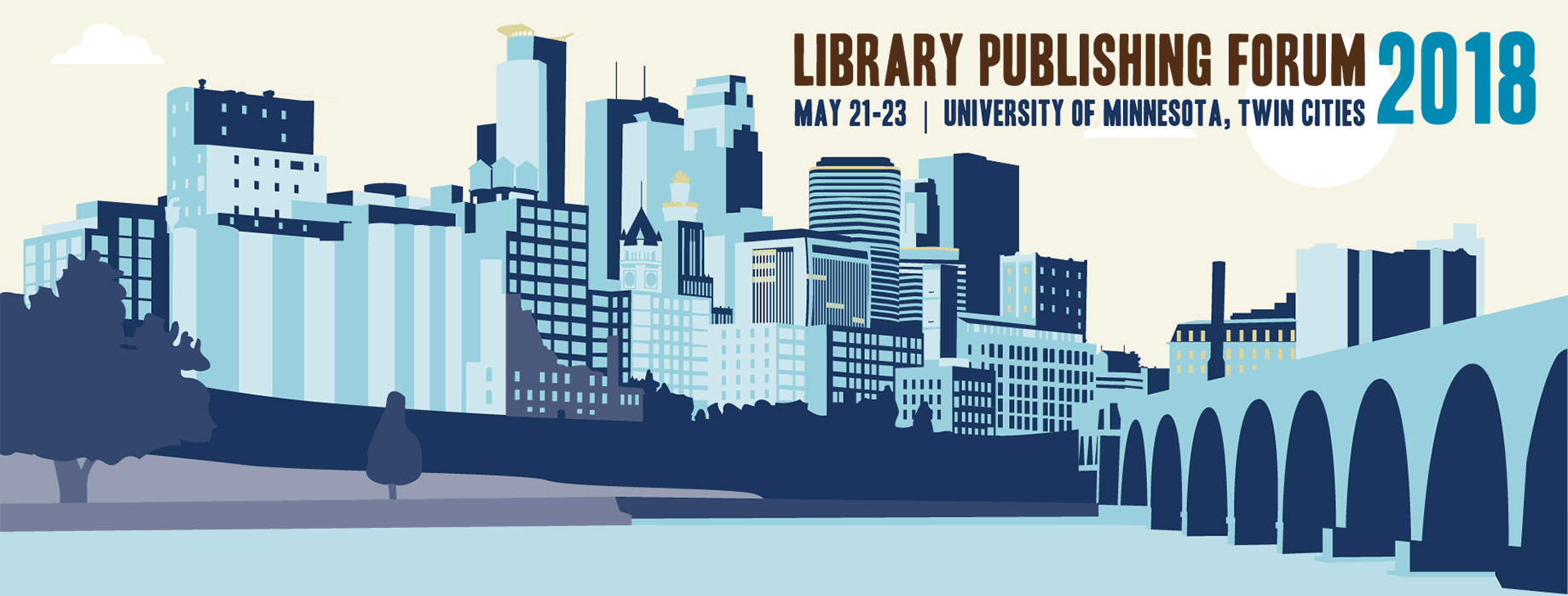Tuesday, May 22, 11:15am-12:15pm
Room: Memorial Hall
Your Sh*it Isn’t Really Open: A challenge to all of us in ScholCommLand
Amy Buckland, University of Guelph
Description: This is a challenge to all of you: your sh*t isn’t open and that’s no longer acceptable. I know it’s been hard to get some legit funding to host a repository with PDFs. I know it’s been hard to get some legit funding to offer open services as though they are real services (no one questions ILL as a service, amirite?) But we have to do better around accessibility when it comes to open. Let’s talk small and big things we could be doing, and accept the challenge to talk about this again in 2019 and have improved our practices.
Exploring Open Data Policies for Library Publishing
Monica Westin, California Digital Library
Description: Independent library publishers have lagged behind other nonprofit and commercial publishers in implementing data sharing policies and platforms for our journals. At the California Digital Library, we have been exploring various ways to support true data sharing for our journal publishing program, both on our current journal manuscript workflow platform (a customized version of OJS) and as a requirement for future systems. In addition to improving our technical services, we have also focused on educating our journal editors on best practices around data sharing. This spring, in collaboration with the data curation group (UC3) at the CDL, we presented a webinar for our journal editors on open data policies and practices and gauged their interest in setting up a data sharing component of their submission and publishing workflows. I will provide an overview of our talking points from the webinar, including definitions and types of data across disciplines, what exactly open data means and why it is crucial in a climate of research budget cuts, and the key characteristics of several major publisher policies, from PLOS to university presses. I will also share what we learned from our journal editors regarding their knowledge about open data and their interest in working with it; and, based on this information, the data publishing options we have decided to pursue for our journal program.
Understanding the New Publishing Goals of Scholars: Toward a Sustainable Model for Broadly Accessible Library Publishing
Janet Swatscheno, University of Illinois at Urbana-Champaign
Description: This presentation introduces the Publishing Without Walls (PWW) project, which is developing a scalable, shareable model for library-based digital publishing. Funded by a grant from the Andrew W. Mellon Foundation, the University of Illinois Library is leading the initiative in partnership with the School of Information Sciences, the Illinois Program for Research in the Humanities, and the African American Studies Department. This project aims to broaden access to scholarship while also increasing the accessibility of publishing itself to scholars from diverse institutions. We are developing a sustainable model for open access publishing that can be adopted academic libraries with varying resources. To this end, our model is guided by research on the publishing requirements of scholars, with a focus on scholars at minority-serving and under-resourced institutions, such as Historically Black Colleges and Universities.
To guide the development of our publishing service model, we are conducting a multimodal study of the goals that scholars aim to meet through digital, open access, multimedia publishing. Through a national survey and a series of more than 20 interviews with humanities scholars, we are identifying authors’ various motivations for digital publishing, such as the desire to reach more diverse audiences; the desire to integrate heterogeneous, interactive evidence into publications; and the desire to publish “living” documents that are subject to ongoing, collaborative authorship and change. These motivations have significant implications for the design and development of publication systems and services. This study has also identified major challenges that authors perceive in publishing processes, along with a set of most-desirable services they seek from library-based publishers. In this talk we will describe the outcomes to date of this study, including the implications for library publishing and improving access to scholarship. This proposal sits at the juncture of the “New directions” and “Accessibility” conference themes.
